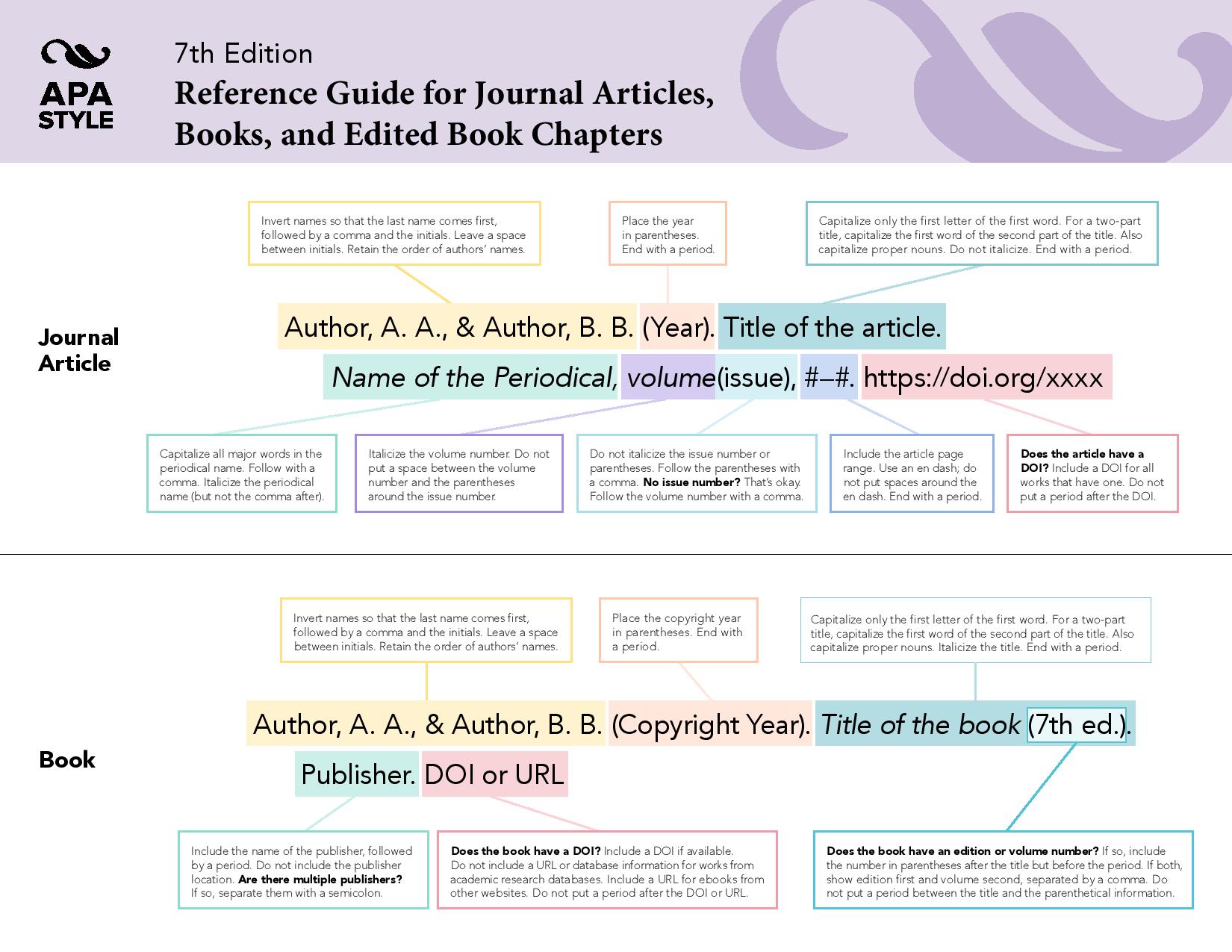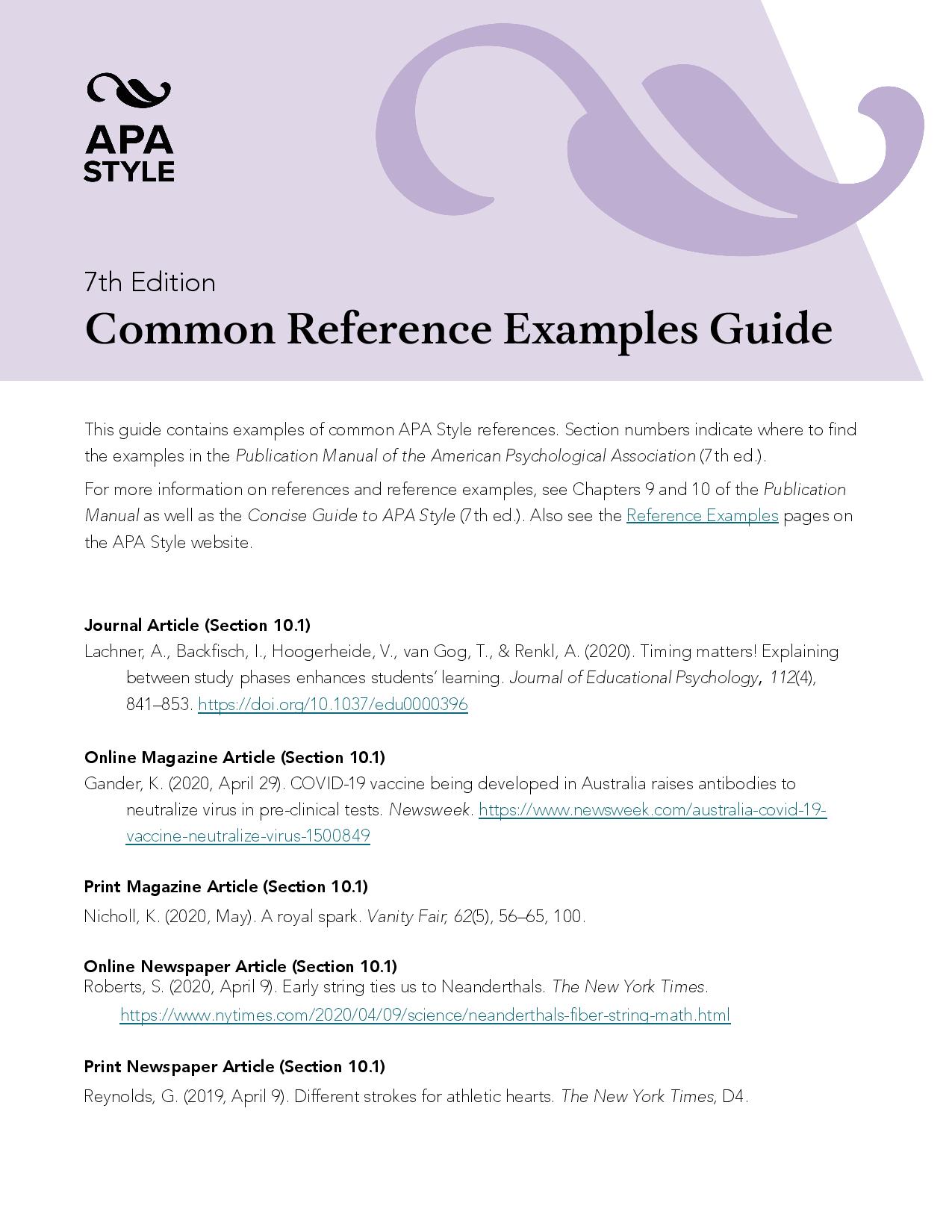American Psychological Association (APA) Style Guide
The American Psychological Association (APA) Style is an author–date citation style. The latest version is the APA 7th edition.
Knowing how to reference is an essential skill for all students and researchers as it demonstrates academic integrity. You can use referencing to strengthen your arguments and assertions, demonstrate that you have used credible sources, avoid plagiarism by acknowledging your information sources, and make details of source books and articles easily available to interested readers.
The American Psychological Association (APA) referencing style has two parts:
- in-text citations that appear in the body of your work
- a reference list that appears at the end.
Always check with your lecturer that this is the citation style required for your unit.
APA 7th edition
The latest version of the APA referencing style is the 7th edition. We’ve compiled some handy resources to help you with this referencing style:
- Find out more about inserting in-text citations
- Find out more about creating reference lists
- Need more help? Try the APA Style blog.
You can use Swinburne Library's referencing tool to explore examples of APA7 referencing.
If you need help with referencing, you can contact the Library for assistance.

APA 7th edition referencing style
You can use referencing to strengthen your arguments and assertions, demonstrate that you have used credible sources, avoid plagiarism by acknowledging your information sources, and make details of source books and articles easily available to interested readers.
Academic Writer
With 100 per cent coverage of the official APA 7th edition style manual, this tool provides many examples of correct referencing for a wide variety of reference types. It can also enable you to save and store references, and help you to write documents in APA format. To quickly find referencing help in Academic Writer, select the Learn Centre and click Sample References.
Additional APA 7th edition referencing guidelines

APA 7th edition reference guide for journal articles, books and edited book chapters

APA 7th edition common reference examples guide

Creating references using APA 7th edition style manual
The APA Style experts will use real-life examples to walk through the process of creating references for a variety of common webpages and websites.

Citing works in text using APA 7th edition style manual
How to paraphrase versus directly quote from a work, how to cite long paraphrases from a single source, when to include a page or paragraph number in a citation, and how to cite when a work has no page numbers.
Why do you need to reference correctly?
Academic integrity refers to presenting academic work in a moral, ethical and honest way. It means using ideas, knowledge and information to develop your own insights, but not presenting someone else's work as your own or trying to gain an unfair advantage. It also means acknowledging the work of others when you include it in your work.
Looking for a different referencing style guide?
Need more information?
Ask us a question or leave us feedback by emailing library@swinburne.edu.au or calling 1300 794 628. Alternatively, complete this form so our team members can get in touch with you.

